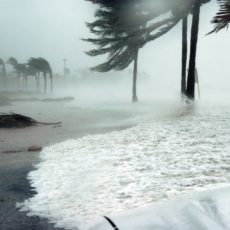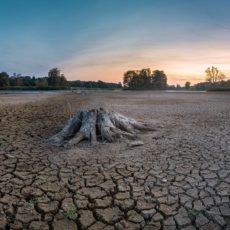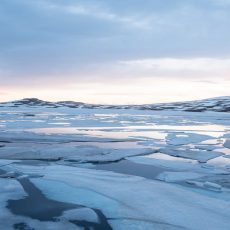What do clouds have to do with climate change? More than you think!
Read moreweather
What are El Niño and La Niña?

Today we’re going to talk more about patterns or cycles which occur naturally that some people might try to blame for global warming and climate change.
Read moreClimate Change is Making Tropical Storms More Intense

There might not be scientific consensus on the frequency of destructive storms increasing across the globe, but there is widespread agreement that the intensity of storms is increasing.
Read moreHistory: Real World Consequences of Our Changing Climate

This week we take a look into the shorter history of changes to our climate throughout the history of humans.
Read moreWhat’s the Difference Between Climate Change and Global Warming?

Today we’re talking about some terms that often cause more than a bit of confusion, and are sometimes used interchangeably, incorrectly: weather, climate, global warming, and climate change.
Read moreGlobal Warming is Letting it Snow in the United States

Why is the United States currently experiencing record low temperatures during global warming? Although decreasing temperatures and global warming seemingly contradict one another, this trend makes sense.
Read moreAll Tricks and No Treats

It’s October, the spookiest month of the year, complete with ghosts and goblins, witches and black cats, scary stories and… climate change? Most of us have at least some small knowledge of the increasing effects of climate change on our planet—increased global temperatures, warming seas, rising seas, melting ice caps, bleaching corals, biodiversity loss, fires, floods, and more. There are, however, some spookier anomalies taking place around the world….
Read moreFire & Ice in the Arctic Circle

When you think of Siberia, you probably picture snow mobiles and huskies. These sights, however, are to become less of the norm, replaced instead with out of control wild fires and disappearing sea ice. Siberia, and indeed other parts of the Arctic Circle in Canada, Alaska and Scandinavia, are expected to really start heating up. As in, twice as fast as the rest of the world. It has long been known that global warming will impact Arctic regions much more severely than elsewhere on the planet, because of the loss of ice and snow, which can effectively reflect a large proportion of the radiative heat from the sun’s UV rays. This is “Arctic amplification” and is a great example of the importance of realizing that 1.5°C of global warming is an average, and does not simply mean that wherever you are in the world, you’re going to feel 1.5°C warmer. Many places on Earth will experience average temperatures much higher than this increase.
Read more